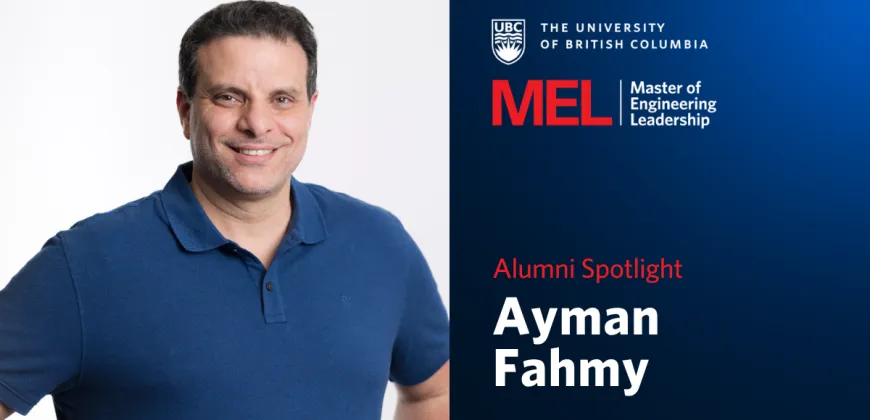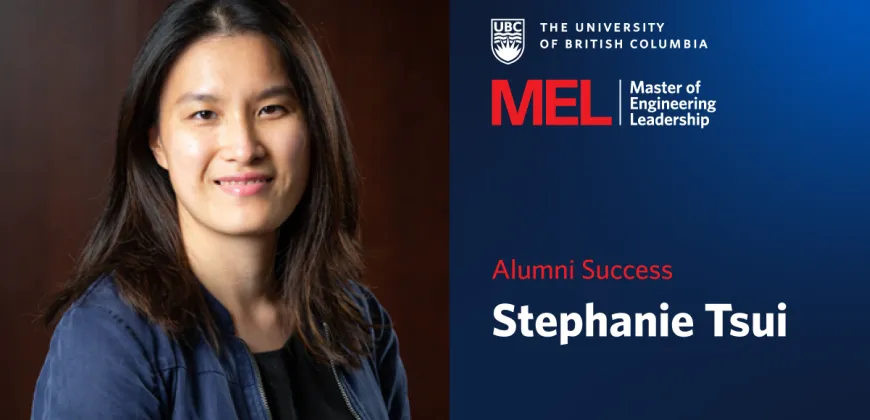Alumni Spotlight: Colin Jeffrey
The MEL in Urban Systems enabled Colin Jeffery to pivot into a new field, and he’s now using his expertise in engineering and business to help clients in the municipal and utilities sectors better manage their infrastructure assets.

After graduating with a degree in mechanical engineering and management, Colin Jeffery worked for several years as a project engineer in the renewable energy sector in Ontario, completing 100 MWs of wind and solar installations. When his employer went out of business in Canada, he switched to a quality control position in manufacturing. Wanting to move into a new area where he could make better use of his engineering expertise, Colin learned of UBC’s Master of Engineering Leadership (MEL) program through a co-op student and knew he’d found the postgraduate degree that could help him shift into a new career.
Although he met the criteria for several MEL programs, the Urban Systems program appealed as an in-demand area with stable career prospects and the “opportunity to work in a rewarding field where your actions are ultimately improving society.”
UBC’s location on Canada’s West Coast was also a drawing card. One of the first things he did after being accepted into the program was to buy a season’s pass to Whistler!
Applying technical concepts to real-world problems
Colin says the MEL’s engineering and urban systems courses taught students to integrate engineering expertise from multiple disciplines and apply technical concepts to a range of real-world scenarios. His infrastructure asset management class, for example, saw students building their technical knowledge by conducting an asset management project for a municipality.
“My group did an asset management project with the City of New Westminster, building on a relationship we had established for a project we did for the City in another Urban Systems class, where we proposed ways to increase citizen engagement by expanding public WiFi hotspots. For the asset management project, we went into the community to assess sidewalks, analyzing data provided by the City to make recommendations on how they could better manage this asset.”
Gaining perspectives in business classes
With 40 per cent of the MEL consisting of business and leadership classes through UBC Sauder’s Robert H. Lee Graduate School, Colin says that the focus on business fundamentals and management perspectives strengthened students’ abilities to think strategically and develop their soft skills. He particularly enjoyed the four-week business boot camp with its immersion in six core business competencies, including finance, strategy and organizational behaviour.
Moving into the field of asset management
Soon after graduating in December 2018, Colin landed a job in his chosen field as a project and utility management engineer with the consulting firm Kerr Wood Leidal Associates. He’s now applying his new knowledge and skills to develop asset management plans for municipalities and working on district energy systems and utility projects.
Reflecting on the intense 12 months of MEL study, Colin says that the degree prepared him to integrate knowledge from multiple engineering disciplines and strengthened his skills in budgeting, project management and effective communication. “The MEL program was integral to my getting this position – developing asset management plans is a big part of my role.”
Would he recommend the program to others? “Definitely. You learn a lot from your professors and other students – both in and outside of class. And Vancouver is a great location for this MEL program as there are 28 municipalities in the surrounding area, giving you many opportunities to work on real-world problems during your degree.”
–
Take the steps to join the next cohort of engineering leaders. If you haven’t already, assess your eligibility and sign up for the upcoming information session to learn how to submit a strong application. Learn more about this innovative master’s program:



